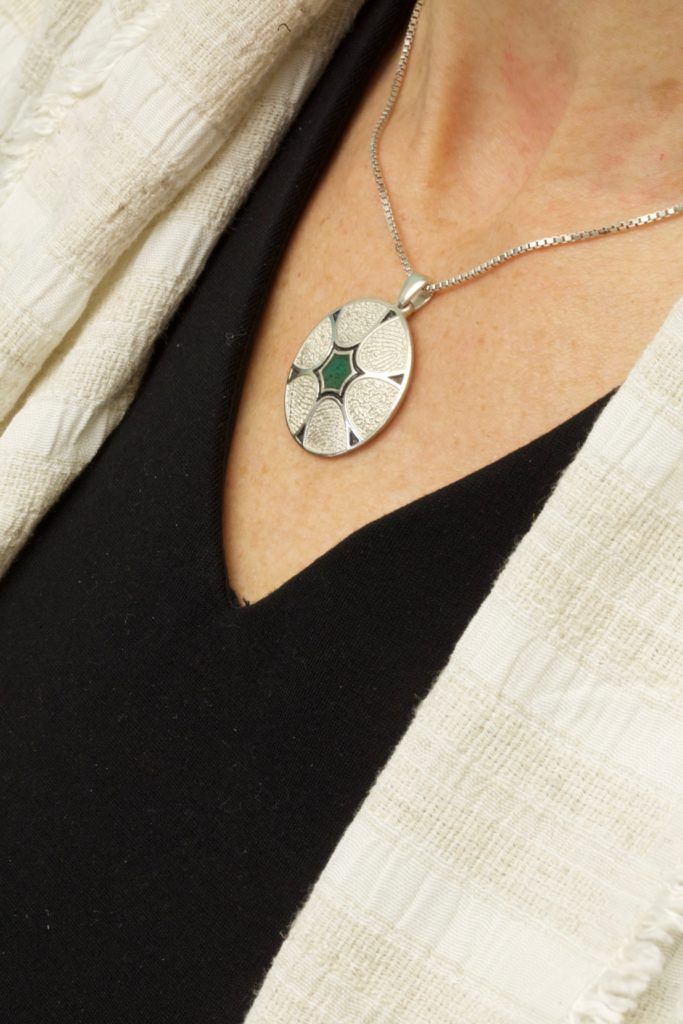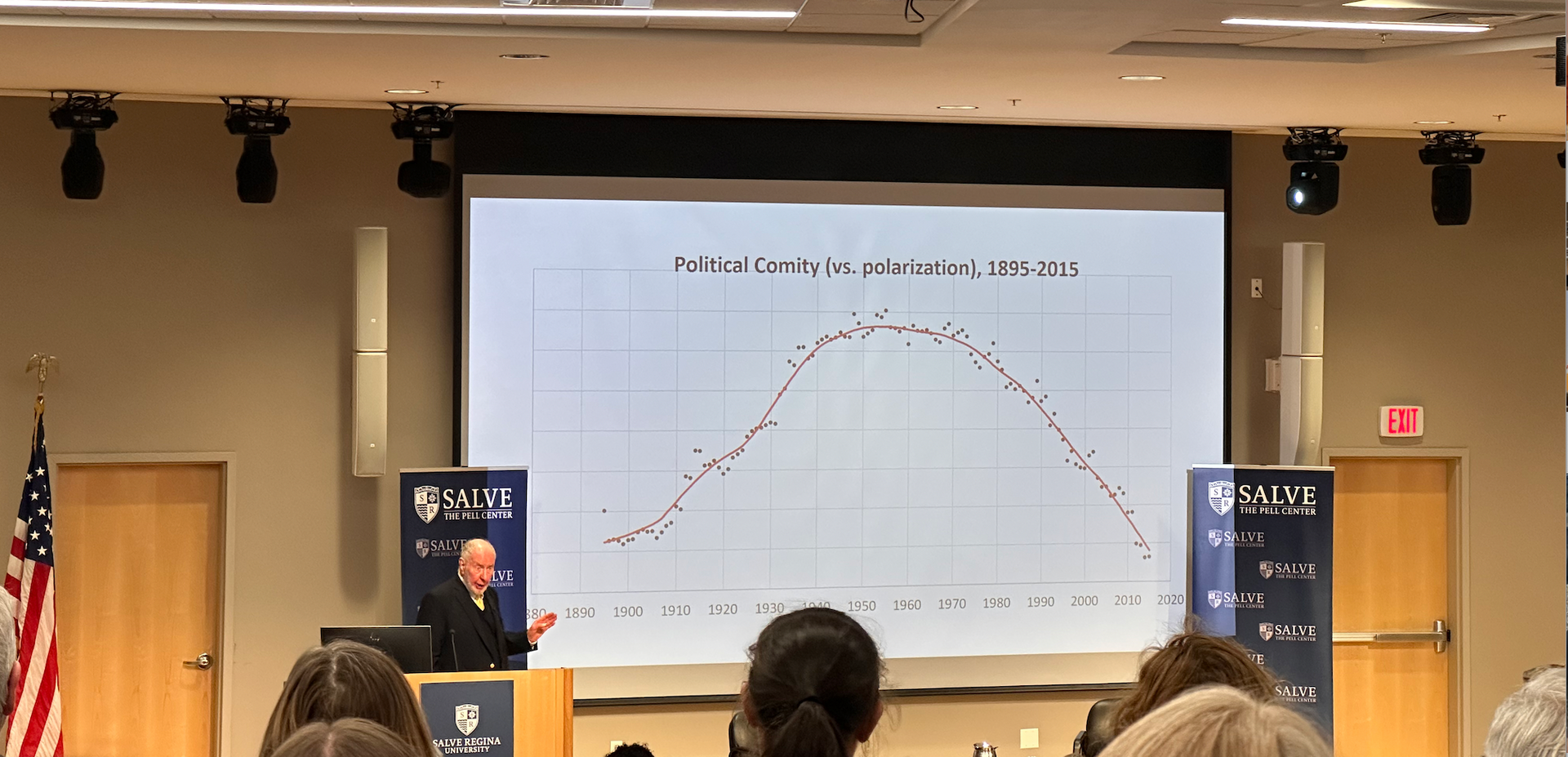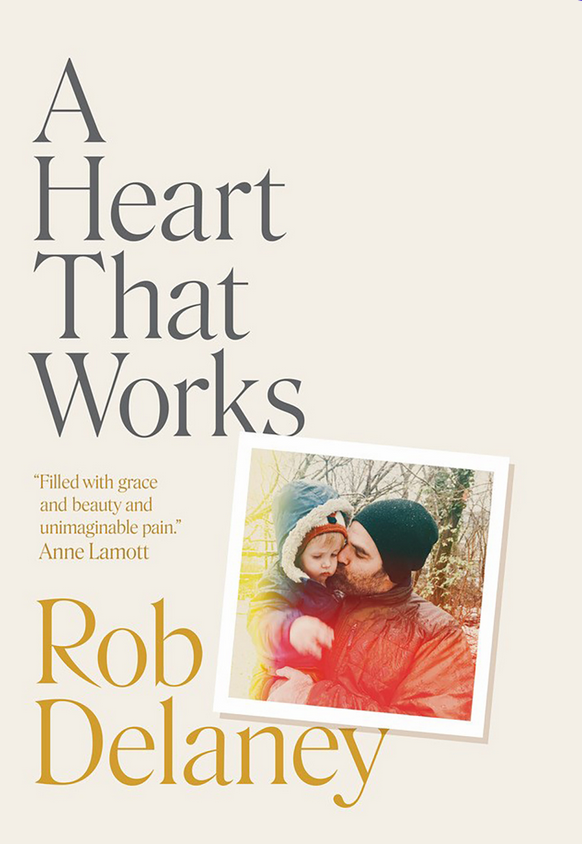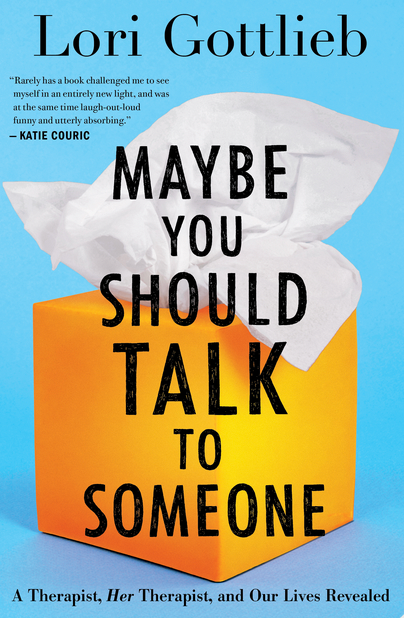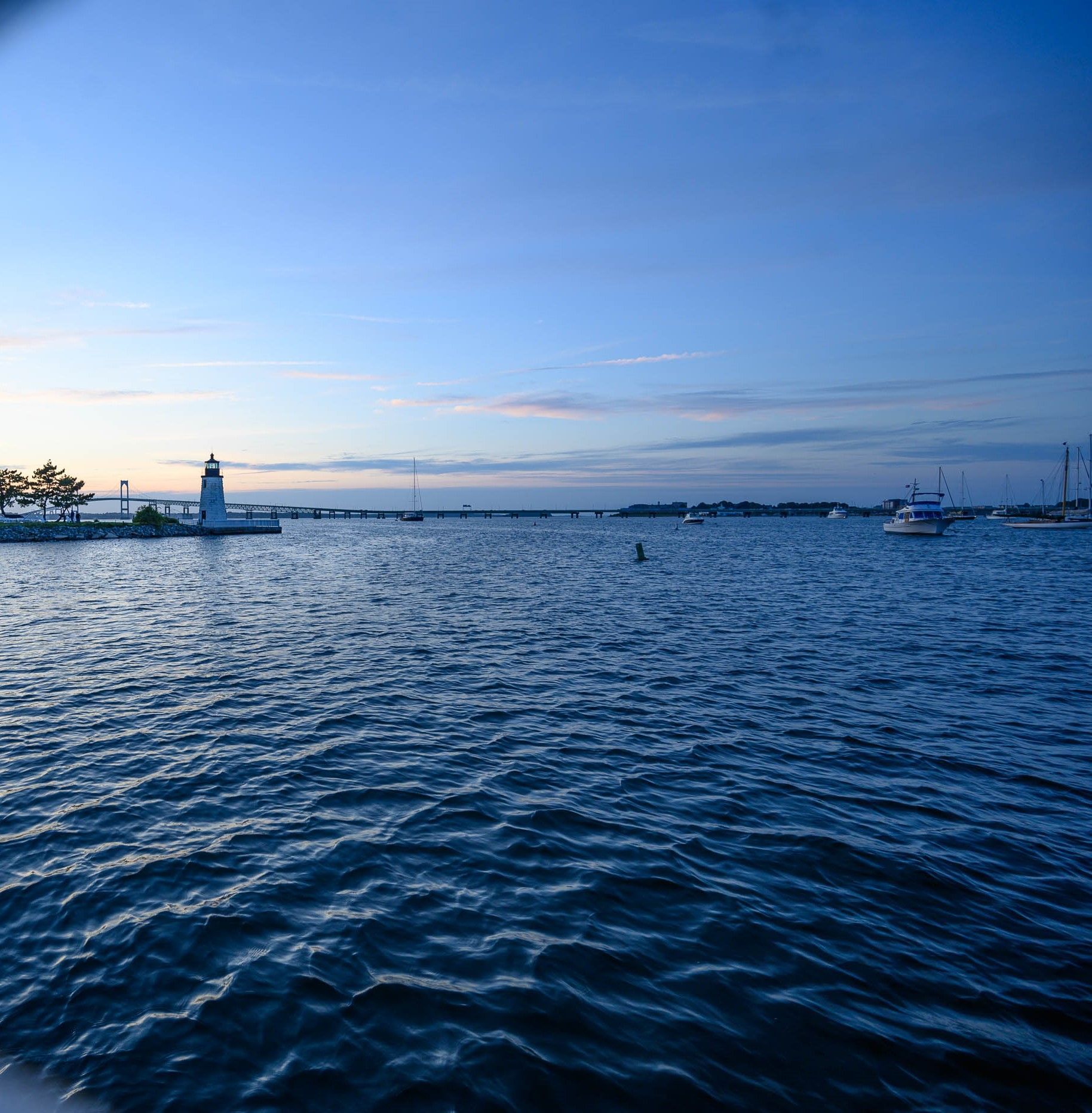By Pearl Marvell
•
April 18, 2025
On April 15th political scientist and author, Dr. Robert D. Putnam gave a lecture at Salve Regina University called What is the State of American Democracy Today?, which was cosponsored by RENewport , a community collaborative based in Newport. Dr. Putnam is known for his work on how civic engagement in society is a bellwether for the state of democracy. One of his best-known works is Bowling Alone in America: The Collapse and Revival of American Community , which addresses the cultural consequences of dramatically declining rates of participation in America’s civic associations, from religious communities to recreational clubs. The talk was kicked off by an introduction from former U.S. Representative for Rhode Island, David Cicilline who is now the president and chief executive officer of the Rhode Island Foundation. The day prior to the talk, a screening of a documentary about Dr. Putnam’s work called Join or Die was screened at the Jane Pickens Theater. The political scientist began the talk by discussing the current state of our political system and democracy. “I’ve tried very hard in my work to be bipartisan,” he said, mentioning that he has worked with “all three Bush’s” during his career as a political scientist. However, what he did assert is that America today has reached historic levels of political polarization, economic inequality, social isolation and cultural self-centeredness, which is reflected in our current political situation. He explained that the wealth gap that exists now is bigger than it was even in the Gilded Age. The only time similar to what we are going through now was at the turn of the 20th century. What happened after this period was the establishment of social security, the Boys Scouts of America and other civic safety nets. Dr. Putnam explained that the ‘60s were considered a time when Americans were most equal in economic terms, although he was quick to point out the lack of equality for women and people of color. Now, “we are a class-divided society,” he said, not just in economic terms, but in recognition. “We don’t think the person pumping gas is the same as us.” He said. Dr. Putnam suggested that the next time the audience members go to a supermarket checkout or have their gas pumped for them, that they ask themselves, “do I think of that person as an equal?” According to Dr. Putnam, we as a society were able to fix similar problems before, so we should be able to fix the problems we face now. What we need is to engage our youth more to lead these movements, much like what Greta Thunberg has done with climate change, as well as ensure that it is grassroots led. It needs to be bottom-up, not top down. “We should be getting to work locally,” he said. The political scientist also talked about social media’s role in this lack of “social capital” as he calls civic engagement. Studies have shown that social media platforms like X and Facebook are designed to favor outrage and anger over other types of messaging, as well as foster in people feeling of increased isolation and loneliness. Face-to-fact engagement just cannot be replaced by a virtual reality. According to Dr. Putnam, what we need is a renewed sense of moral obligation to fix our society. “It won’t get fixed this time unless you and your children and students take up this moral calling,” he said as he addressed the full auditorium. “I think for sure there is the desire to fix the problem,” he continued. Dr. Putnam concluded the talk saying that he was hopeful for the future and paraphrased the late English Rabbi Lord Jonathan Sacks that optimism is a passive virtue, but hope is an active one. Hopefully we can all be more hopeful!

